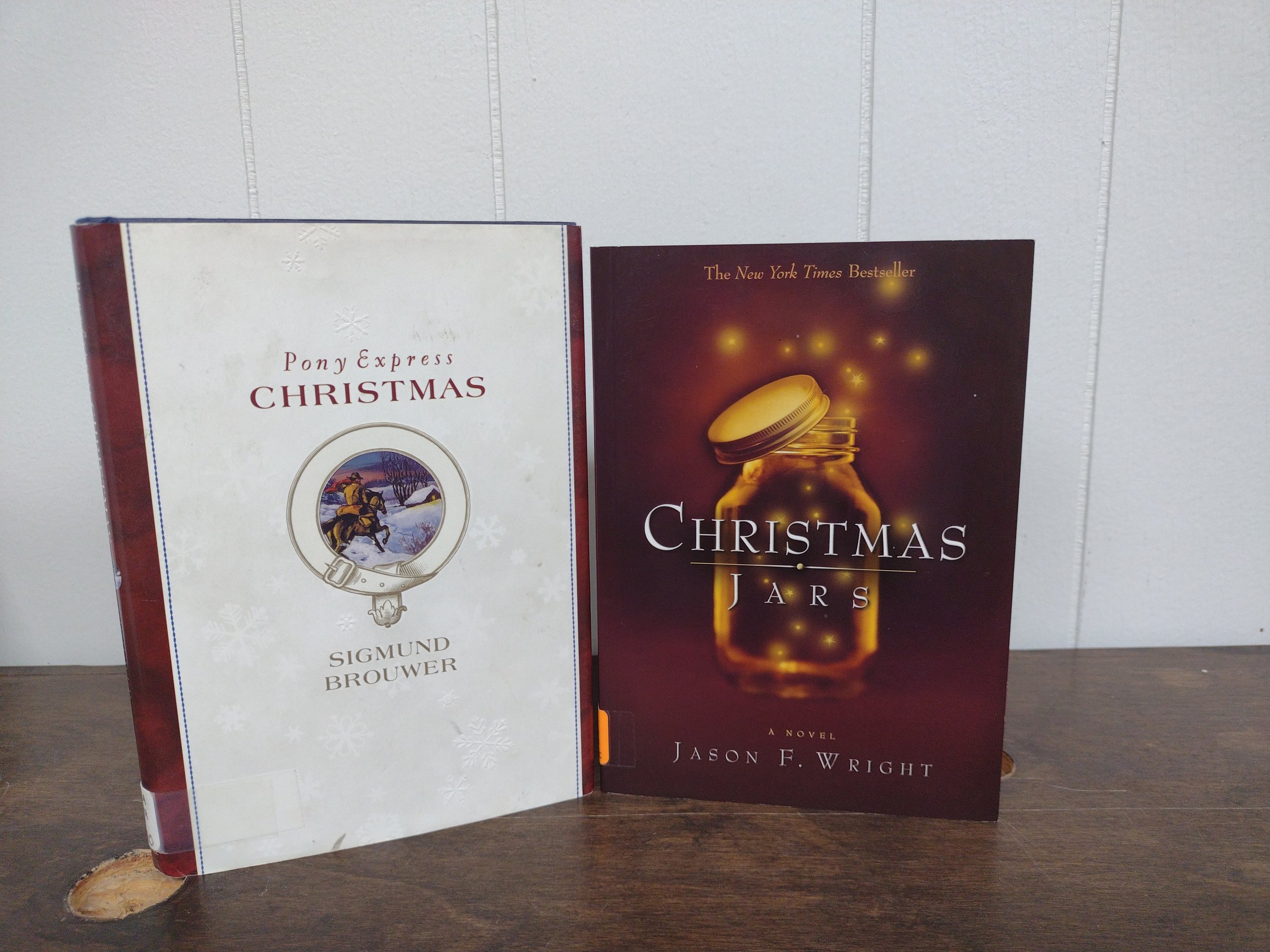You can listen to Ask The Pastor every weekday at 9:00am MST on 97.1FM Hope Radio KCMI! You can also listen and subscribe to Ask The Pastor in your favorite podcast feed. Listen on Apple Podcasts, Spotify, Google Podcasts, Stitcher, Amazon Music and most other podcast services.
This edition of Ask the Pastor features Pastors Johnathan Hernandez and Garry Schick.
Garry Schick
Well Jonathan, I'm not sure you got this question, but I think it's a great one. What does the Bible say about generosity and giving? What do you think?
Jonathan Hernandez
Yeah, that's definitely one that I think, as I pastored for 10 years, I always remember hearing this question come up and even in our youth group. Our kids will ask a question that's similar to that. So I think as we look at this, I think a lot of times we think generosity and giving has to be financial and money, and I think we miss it when we just keep it to that. As we look in scripture, we can think of Exodus chapter 35. Here we see that the Israelites are generously giving materials and time to build the tabernacle. So we could be generous in the building of the church, the church building, or even we could take that a little bit further and think about helping our community. If there's, like, we have the firefighter ministry here in town, that when there's a house that's been affected by a fire, there's this community that pulls together to help that family. And so that's a huge thing; that's being generous. That's giving. We could look at Malachi, Malachi chapter three, and it says, "to bring the whole tithe into the storehouse. That there may be food in the house." And this is the part in scripture, the only part in scripture that God says, "test me in that tithing part of giving and generosity." And we think about the New Testament and we see that God gave His one and only son that God was generously giving to us as a human race. And so we could look at all of those things and we see where not only is God generous in giving to us, but also where we can be generous in giving back into our communities. Into our churches with tithes and offerings given to missionaries that are out in the field financially. but not only financially, but also in prayer and support that way. So we can't get stuck in where generosity, being generous and giving is just financial; but where it's also us being the hands and feet where we're willing to help out. At Cornerstone, we have a day once a month where we have a food pantry and there's a bunch of us that get together and hand out food into our community for a couple hours that day. That's an amazing opportunity for us to be generous and give back to help support families that are in need. And I know there's lots of churches here in town that do similar things too. Not only with a food pantry, but also I remember my pastor, when I first gave my life to the Lord, him and the men's group would go around and mow people's lawns and things like that where they were being able to give back into the community and show the love of Christ through that. And so I just would really challenge our listeners to really think about, "how can you give generously back into the community? Into your church?" Are you serving in your churches and being generous with your time and things like that. And then also your tithes and offerings too.
Garry Schick
Yeah, I think we tend to look at our money as, and I think you mentioned this in a previous episode, just sort of as an illustration of, "well, this is mine and maybe I'll give you a little bit." And it's just kind of in our nature as we go out into the world. We want to get the most bang for our buck. And so we actually have a mindset to give the least to get the most. When it comes to biblical giving, this is a different motivation. This isn't about getting, and I guess the little phrase that came into my head while you were talking was, "give to what you love." It's a different motivation when you are getting the gifts for your loved ones at Christmas. At that point you're not, hopefully you're not saying, "well okay, my wife has this list of desires. What's the least I can give her this year?" That sends up some red flags in all kinds of areas about your relationship with your wife, if that's the attitude. Usually it's more, "okay, what's the best I can do for my wife and my kids?" What's the most we can afford, and maybe even just a little bit more literally, giving till it hurts to make those we love happy. In the Old Testament, there was some tithing required, and in a sense, it was just a way of giving back to God kind of a minimum. You have this harvest, 10%, that's affordable, right? That's not too big a hurt. And at the same time, it supports the temple, it supports the priest. So it was, in a sense that tithing was kind of a tax and a fairly light one at that. I mean, we love to only have to give 10%, but the idea behind it actually came from a time before there was any law at all. The very first tithe, of course, is given in the book of Genesis by Abraham in chapter 14. Nobody's requiring him to give, but he gives a 10th of the spoils of war to the Lord through Melchizedek, the priest. In fact, it's not only mentioned in Genesis 14:20, but it's taken up again in Hebrews 7:2. And then in terms of the tabernacle, and I think you mentioned this, when they were first building it in Exodus 35:20-29, Moses just kind of throws the doors open for people to give of what they had received from Egypt, when they were in Egypt, and on their way out of Egypt for the building of God's place of worship. And the people gave so freely that Moses actually had to tell them to stop bringing in silver and gold and all the things that were used in the making and the furnishing of that. I mean, we actually studied this in Bible study recently. And my board chairman said, "yeah, when was the last time we told the people to stop giving on a Sunday?" I mean, that just happened so rarely. But you kind of do see it when churches pull together and they're doing a project. There's a building project or a fundraising campaign, or something that people are not just doing because they have to, but they're excited. They can kind of see something beautiful as an end result that will honor the Lord and that they can be a part of. And there's kind of an excitement there, and that I think really should be, as you were pointing out, just the heart of our giving. We see it again in 2 Chronicles 8:24 and following when the temple has kind of falling into disrepair, and at one point the priest put out a box and people just, every time it's full. They just empty it and they give the money to the builders, and they didn't even have to ask for a receipt or proof that the money was used. Well, everybody was on the same page. And again, it was just one of those things where everybody was doing all they could do. It wasn't a matter of, "well yeah, I'll go build at the temple and I'll put in the minimum and get the most out of it from those." No, it was, everybody was like, "Now look at God's temple. We need to get this thing fixed and I need some resources to do it with. But as a builder, I'm going to put my all into it." The people said, "we trust you," and they worked together. I love the passage in Ecclesiastes 11:1 where it says, "cast your bread upon the waters and you will find it in many days." It's a beautiful thing. And you mentioned from Malachi, where God actually asks the people to test him. If you'll give, you just see how I will abundantly reward you, above and beyond. You know, in Philippians, many of us are familiar with the passage where Paul says, "and my God, will meet all your needs according to His glorious riches in Christ Jesus. But the context of that is where Paul had been in some need, and the Philippians had freely given to them just out of their love for him. And so one of the ways that we love God is to support those who are doing His work and to use our resources toward evangelism. Toward the support of your local church and ministries toward missionaries. And I mean, you can put it all on the plate and designate it one way or another. You can just put it in the general fund. You can pick specific missionaries that you give directly to. I mean, the Bible doesn't say, "here's how you give, where you give, when you give." I love when Paul says in Corinthians, he says, "remember this, whoever sows sparingly will also reap sparingly; but he who sows generously will reap generously. Each should give out of what he has decided in his own heart, not reluctantly or compulsion. For God loves a cheerful giver." As you pointed out, God freely gives to us. He doesn't owe us anything ever, but He freely cares for us. And that 10% or whatever---and I think 10%, even in the Old Testament was kind of considered a minimum and we shouldn't be looking, so we're kind of like, "oh, so you're saying it's got to be more than that?" No, I'm not. I'm saying, what can you in faith say, "okay, you have entrusted to me; I give back to you God because I love you and I'm grateful for how you are providing for me and my family." And it's the attitude of gratitude out of a heart of gratitude. With an attitude of gratitude we give to what we love. If the love isn't there, don't do it. If you're not grateful, don't do it. But heart check, do you know the Lord? I mean, have you pondered how He has poured out His mercies and love upon you through Christ? When that becomes the motivation then it's, man, "what can I do to really invest in it and look at it that way?" When we give to a cause, we may not directly receive the dividend, so to speak. You would if you threw it in the stock market, and you're supporting a company that you like and you're hoping to get back from them. This is a different kind of, 'get back.' You are giving to the Lord to say, "wow, and how will He use that?" And He does. He takes the little we give and He multiplies it, like Jesus did with the bread and the loaves. I mean, I've seen it in church functions. I remember once, and I've heard about it where it was sort of a funeral dinner and the lady said it just wasn't quite enough, but then it was enough. Well, how did that happen? They brought out of their hearts what they had, and, "Oh, we're going to be short. There's more people here than we thought," but wait a minute. It went to the very last person. How did that happen? God blesses it, and sometimes He does the miracles and sometimes somebody runs out and buys some more rolls. I mean, it's not even about looking for a miracle, it's just looking to love God and knowing that He's going to love us back in return; in a physical and a practical way. We are physical beings. Yes, we worship in spirit and truth, but we worship with our whole being. And giving is one of those ways that in a concrete way, we can be a part of what God is physically doing in this world. And what a great idea as we enter the new year, and some of us have annual meetings coming up and some of them, they had happen toward the end of last year. But no matter where you're at, if you're part of a church that you love, sit down with your wife or if you're a single person, sit down and just kind of look at your finances and say, "okay, what can I do to really make this thing go this year? How can I bless and be a part of in a positive way?" Not giving in a way that takes control, like, "okay, I'll give if--" no, that is not the standard. It's, how can I just be a part and not only, as you pointed out, not only in our physical giving that should be there, but just in other ways. How can I help out? How can I get involved? How can I take of the gifts that God has given me, the strengths, the talents, the spiritual gifts, the interests? How can I channel that into loving God, building His church, encouraging others, sharing the good news of Christ to world that needs it?
























